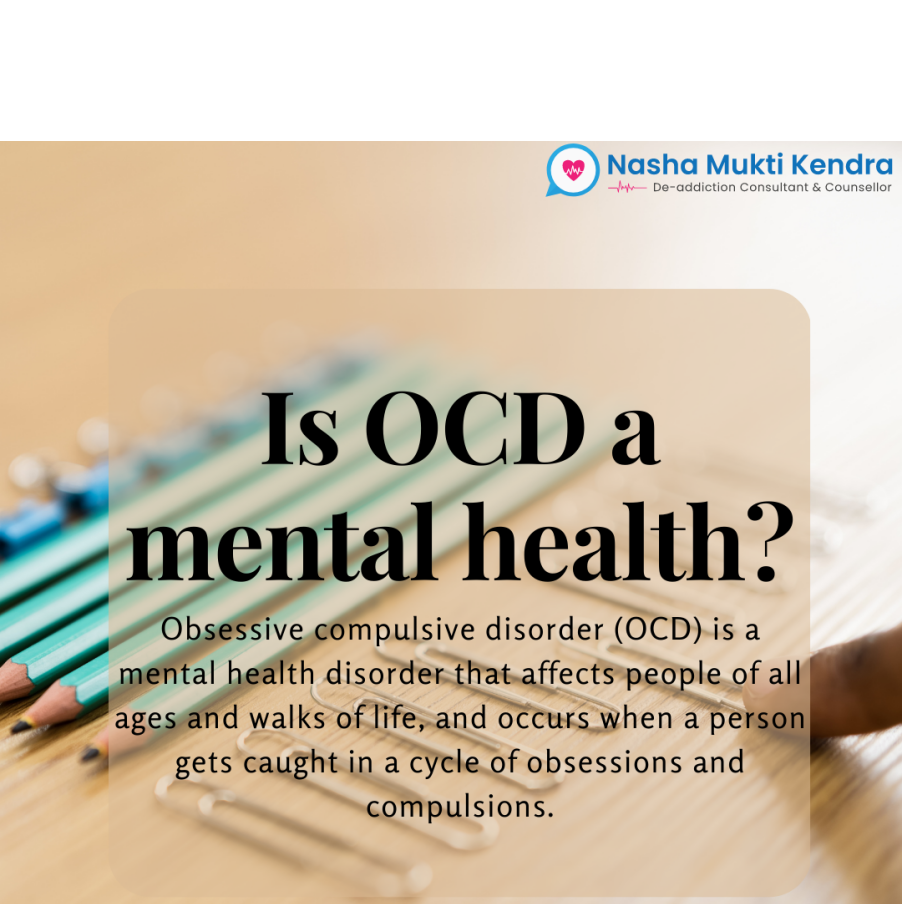Obsessive Compulsive Disorder, also commonly known as OCD, is a common and long-lasting disorder. People who have OCD often get uncontrollable with their thoughts (obsessions) and behaviours (compulsion). They feel the urge to continue doing it over and over again. OCD patients often face constant fears and unwanted thoughts. These fears and thoughts often disturb the daily activities a person does.
You would want to stop those obsessions over thoughts and fear, but they get more and more out of control, ultimately increasing anxiety and distress. In order to try to ease your stress, you try to control the compulsive reactions. But despite the effort you put in to eliminate the fear and the overwhelming thoughts, they keep coming back. This situation leads to the vicious cycle of OCD.
OCD can be of any type. For instance, you have an excessive fear of germs that can make you ill. To ease the urge to get rid of it and control the fear, you keep on washing your hand, which, in the end, becomes chapped and sore. It may sound normal to fear germs, but people with OCD can feel the real deal.
Symptoms and signs of OCD
The symptoms and signs can really disturb you and your daily routines like college, school or work. A person who has OCD can have both obsessions and compulsions symptoms. But one can also have only compulsions or only obsession symptoms. They might or might not realise that they are being unreasonable or too excessive. But becoming unreasonable can be a big deal in a person’s life.
Obsession symptoms
Obsession symptoms can bring out anxiety and distress. You will have unwanted, repeated, and persistent thoughts and images that trigger fear and can cause you anxiety. You can try to get rid of them or ignore them by practising compulsive behaviour. Obsession symptoms hit you when you do other things or think about anything.
Some of the profound themes that trigger the obsessions, such are:
- Having a hard time or doubt in dealing with certain things
- The fear of dirt or sand
- When things are not kept symmetrically or systematically
- Unusual thoughts, which can include sexual, aggression or religious subjects
- The horrific thought of losing your control and harming others or yourself
What are the proper signs and symptoms of obsession?
- Driving your car in a marketplace where you will find a huge crowd.
- Feeling disgusted by the thought of touching objects which others touched.
- Disgusted by seeing or imagining any sexual images.
- Being obsessed with objects keeping things orderly or the correct way.
- Fearful thoughts of acting weirdly or shouting in public.
- If you avoid certain things to do which you think might trigger the obsession, such as driving in a crowded place.
- Doubting yourself that you turned off the stove or switched off the light or fan.
Compulsion symptoms
Compulsion symptoms are monotonous behaviours that you feel the urge to perform. These compulsions, which you will do, are an act to reduce the anxiety that is triggered by the obsessions. However, compulsion can only put you into temporary relief. To help yourself with the obsessions, you might make up rules or behaviours to control your anxiety.
Just like obsessions, compulsions also have some severe symptoms:
- Counting
- Performing a strict routine
- Checking
- Cleaning and washing
- Wanting reassurance
- Orderliness
What are the examples of compulsion symptoms and signs?
- Counting numbers in a specific pattern
- Repeating a word, prayer or phrase in silence
- Washing hands with soap until the skin becomes raw
- Checking doors or windows and repeatedly making sure that they are locked
- Checking on the stove, if they are turned off or not
- Keeping things facing your “correct” way
OCD also triggers tic disorders, such as motor tics. Motor tics are sudden, monotonous movements such as eye movement, blinking, shoulder or head jerking, or facial grimacing. One common tic includes clearing the throat repeatedly, grunting, or sniffing.
Symptoms might get ease over time, or they might go worse; one should always try to keep themselves away from the things that may trigger their obsessions or else one might choose drugs or alcohol to relieve themselves. Most of the elders with OCD don’t even realise that they have it. But at present most parents and teachers notice OCD symptoms if a child has any.
What are the risk factors?
Almost everyone all over the world can be diagnosed with OCD. From adults to, adolescents to children can get affected by OCD. People typically get affected at the age of nineteen.
Nobody knows about the causes of OCD, but there are a few risk factors. Some of them are:
- Brain functioning and structure
- Genetics
- Environment
Get help from Nasha Mukti Kendra
You will find Nasha Mukti Kendra all around the country. We are one of the best rehabilitation centres that treat Obsessive Compulsive Disorder (OCD). Nasha Mukti Kendra in Delhi NCR has top-notch clinical psychologists who are experienced and trained in how to treat OCD patients. We have a vast range of patients who are dealing with the same issue. Our therapist takes sessions every week. They make sure you get American-based therapy, i.e. Love and Care therapy. We believe people should get rid of any disorder without consuming drugs.
At Nasha Mukti Kendra, you will see a vast open area where our patients do daily yoga and meditation and keep their thoughts under control. We don’t let outpatients miss home; we celebrate every festival and occasion to keep our patients happy. We make a comfortable environment for our patients.
